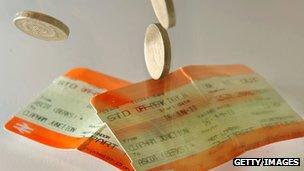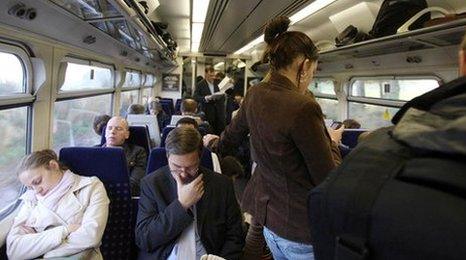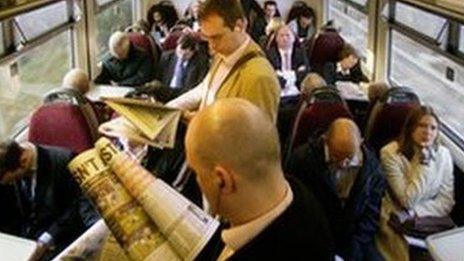Alternative routes around London commuting spend
- Published
- comments
Sian Morten has started cycling to work to save on commuting costs
Fares are only going one way at the moment. Up.
There is a trend now for authorities to move the burden of public transport away from general taxation and the taxpayer, and more onto the fare payer.
A lot of people can't escape those increases but there is some evidence that some are.
I asked Full Fact, external, the independent fact-checking group, to find out what has happened to transport costs over the last decade. It makes very interesting reading.
It found that since 2002 average rail fares have increased by 60% and bus fares have risen by 66%.
However, pay hasn't kept up. It has increased by 32% over the same period and now the average annual wage in London is £34,900.
More pertinently perhaps, as proportion of household income, transport spend has actually stayed fairly static.
Cheaper commute?
In 2001 on average £61 was spent each week on transport - 12.3% of household income.
By 2011, that weekly spend had risen to £67 a week - but only 11.6% of household income.
Of course, there is no such thing as an average commuter or family, but there could be a number of reasons why spend as a proportion of household income has stayed pretty flat.

Household spend on weekly travel has remained static
Some commuters like Sian Morten, who I interviewed for a BBC London news report, have switched to cycling as it's cheaper.
There has also been a rise in concessions over the last decade. Home working and off-peak travel may have played a part.
It could also be the case that leisure travel is one of the the first things to go when reining in the household budget.
Not everyone can juggle their transport costs, but there is some evidence that some people are.
I'd be interested to hear from commuters who have found cheaper ways to get around other than cycling.
- Published2 January 2013

- Published14 August 2012
